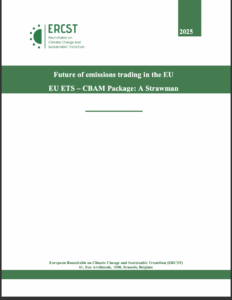Energy Taxation Directive – feedback to the Commission’s roadmap
This meeting was an opportunity for stakeholders to discuss the review of the Energy Taxation Directive, of which the process was recently started by the European Commission. ERCST shared its draft […]

